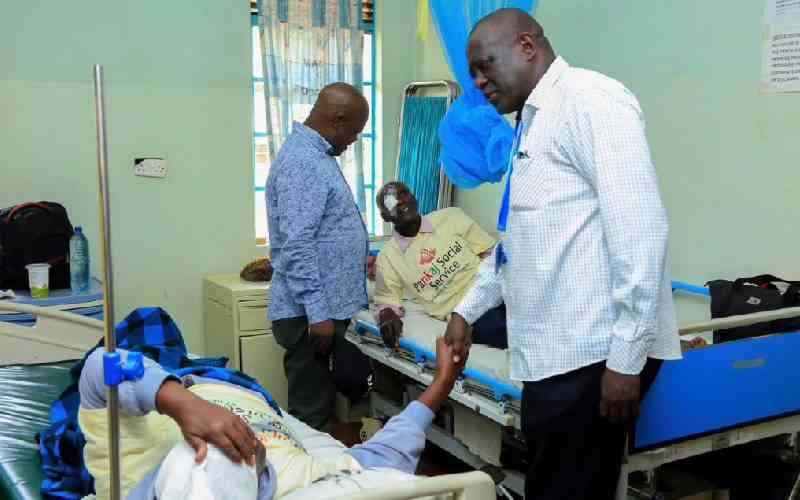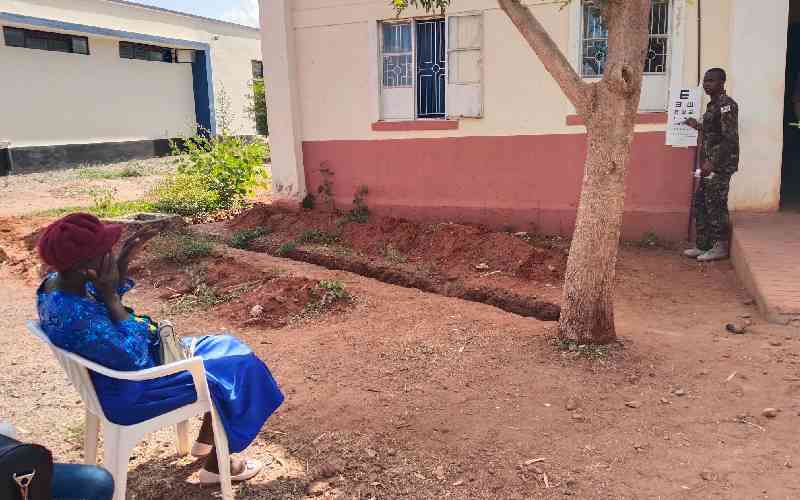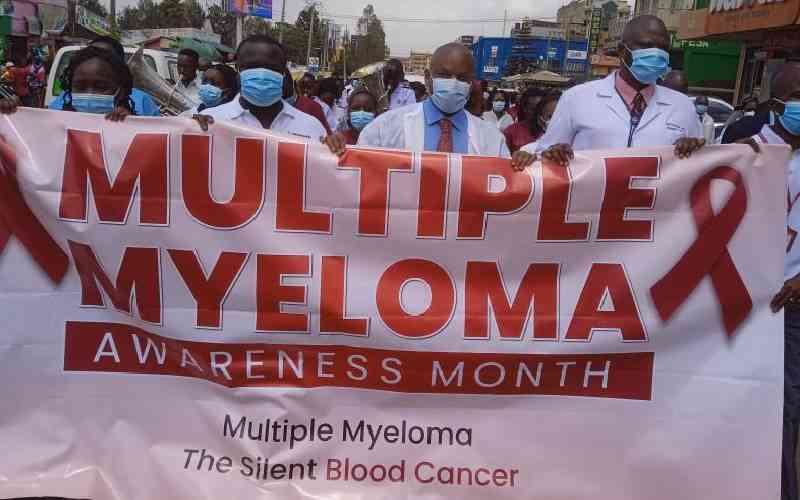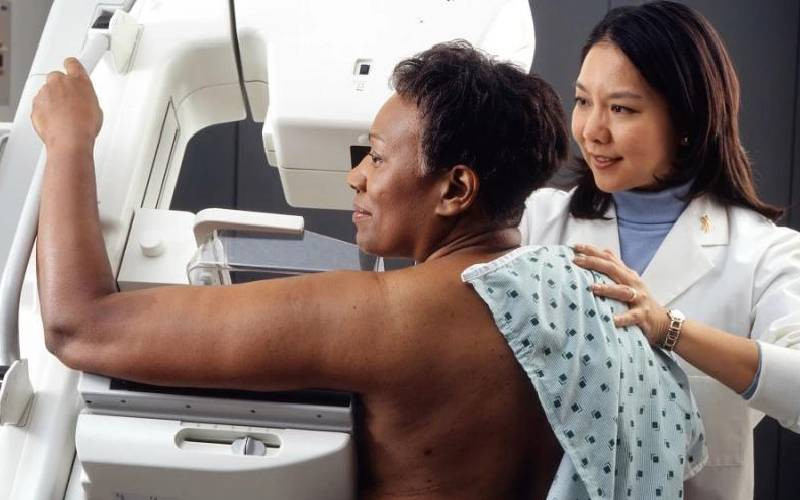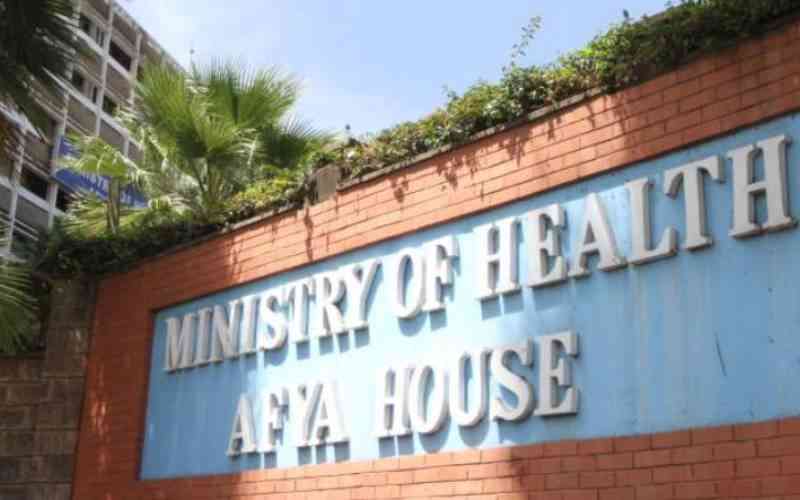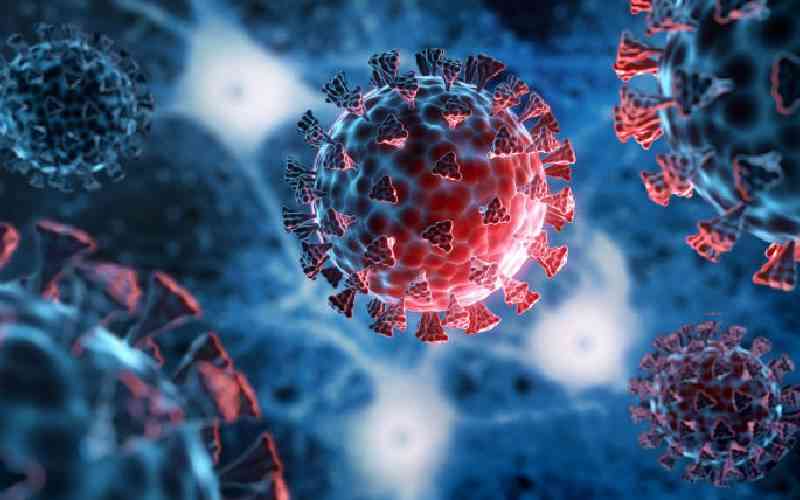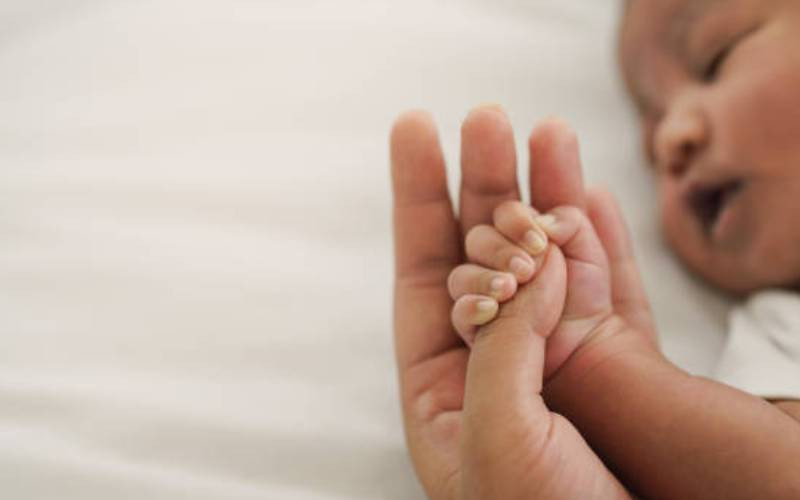
If your newborn baby develops a high body temperature, is unable to feed well, is irritable, is non-responsive or loses consciousness, has a convulsion/fit or has recurrent vomiting, and/or their skin and mouth turn bluish, it's time to alert your healthcare provider.
Paediatricians advise parents of babies presenting with these symptoms to seek immediate medical attention, to rule out sepsis, an infection involving the bloodstream in newborn infants less than 28 days old.
Globally, newborns are at the highest risk for bacterial sepsis, with the prevalence at 1 to 10 per 1000 live births. In Kenya, neonatal sepsis is the third leading cause of newborn deaths after prematurity and birth asphyxia in Kenya. In 2022, it accounted for about 8 per cent of newborn deaths in Kenya.
Dr Audrey Chepkemoi, a neonatologist at the Moi and Teaching Referral Hospital in Eldoret explains that sepsis is a life-threatening medical emergency that happens when an existing localised infection you already have triggers a chain reaction throughout your body. Infections that lead to sepsis most often start in the lungs, urinary tract, skin, or gastrointestinal tract. Without timely treatment, sepsis can rapidly lead to tissue damage, organ failure and death.
Sepsis is categorised into early onset which occurs before a baby is 72 hours old and late sepsis which occurs after 72 hours of birth. Diagnosis is done through clinical examination and laboratory tests where blood is drawn for examination to check the cause of infection and the body's immune response to it. An x-ray and urine tests can also be done to identify where the infection started.
Babies at risk include those born to mothers with infections in pregnancy including urinary tract infections, and mothers who had early or premature prolonged rupture of membrane (leakage of amniotic fluid) for over 18 hours. Preterm babies less than 37 weeks of pregnancy are also at increased risk of developing sepsis.
"Babies can get the infection during labour and delivery especially where there are multiple obstetric procedures. Late-onset sepsis is mostly caused by prolonged hospital stays where infection can be passed from one baby to another. Lack of hygiene and not practising infection prevention by parents and hospital staff can also cause late-onset neonatal sepsis," she adds.
Unhygienic umbilical cord care is also a leading cause of neonatal sepsis.
"We educate mothers to clean their hands before handling their babies, and stop traditional practices like applying saliva, mud or other agents to the baby's cord," says Dr Chepkemoi.
"The government has provided guidelines for cord care using chlorhexidine gel which should be followed by all healthcare workers. Parents should be shown how to apply it to the baby's cord until it heals," Dr Chepkemoi says.
Dr Chepkemoi notes that neonatal sepsis is treatable with antibiotics especially when diagnosed early. The recommended treatment options are outlined in the Kenya Basic Paediatrics Protocols (2022).
 The Standard Group Plc is a multi-media organization with investments in media
platforms spanning newspaper print
operations, television, radio broadcasting, digital and online services. The
Standard Group is recognized as a
leading multi-media house in Kenya with a key influence in matters of national
and international interest.
The Standard Group Plc is a multi-media organization with investments in media
platforms spanning newspaper print
operations, television, radio broadcasting, digital and online services. The
Standard Group is recognized as a
leading multi-media house in Kenya with a key influence in matters of national
and international interest.



